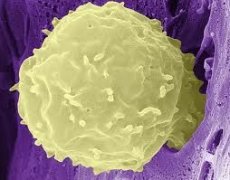Medical expert of the article
New publications
A new mechanism for the development of type 2 diabetes has been discovered
Last reviewed: 01.07.2025

All iLive content is medically reviewed or fact checked to ensure as much factual accuracy as possible.
We have strict sourcing guidelines and only link to reputable media sites, academic research institutions and, whenever possible, medically peer reviewed studies. Note that the numbers in parentheses ([1], [2], etc.) are clickable links to these studies.
If you feel that any of our content is inaccurate, out-of-date, or otherwise questionable, please select it and press Ctrl + Enter.

Scientists from the University of California, San Diego (USA) claim that neutrophils, the main type of white blood cell in humans, play a completely unexpected role as modulators in insulin resistance, the main characteristic of type 2 diabetes. This conclusion was made in an article published in the journal Nature Medicine.
Neutrophils are the immune system cells that are the first to respond to tissue inflammation; they are able to make it chronic by calling other white blood cells, macrophages, to the scene. At the same time, it has been established that minor chronic inflammations occurring in adipose tissue are one of the main causes of systematic insulin resistance.
Scientists led by Jerrold M. Olefsky used liver and fat cells from mice and humans, as well as live rats, in their study. They found that an enzyme secreted by neutrophils (neutrophil elastase, NE) disrupts insulin signaling pathways, fueling resistance, i.e., there is an unexplained decrease in the affinity of receptors for the presence of insulin.
But removing NE in mice that were obese but still on a high-fat diet led to increased insulin sensitivity.
It used to be thought that “temporary” cells like neutrophils (which live for only five days) were simply incapable of maintaining a small amount of chronic inflammation. Now it has been recognized that neutrophils have a very powerful immune-modulating effect. They use their enzyme NE to activate a signaling pathway that causes pathogen-eating macrophages to secrete inflammatory molecules called cytokines. At the same time, this same enzyme NE causes the degradation of the protein IRS1, a key protein in the insulin signaling pathway in both the liver and fat cells.
Well, it seems that neutrophils are asking for trouble. Their suddenly obvious role in provoking insulin resistance makes them a new target in the fight against type 2 diabetes. Inhibiting the activity of the immunomodulatory enzyme NE is quite capable of reversing (or at least weakening) insulin resistance. But as always, the sword has two ends…


 [
[